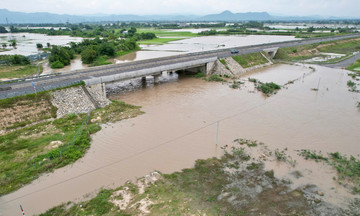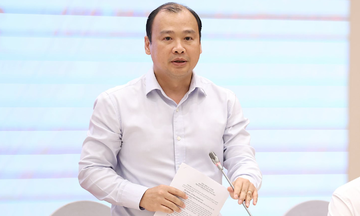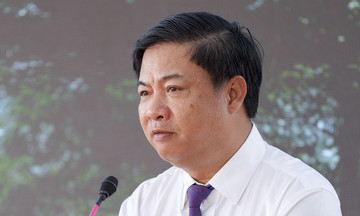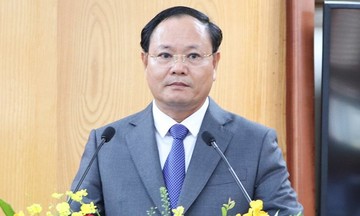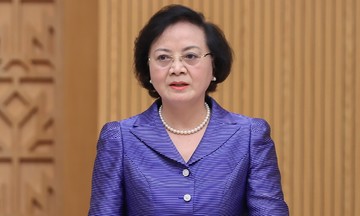At a scientific workshop on the impact of transportation electrification on air pollution in Vietnam, co-hosted by the Department of Climate Change (Ministry of Agriculture and Rural Development) and VinUni University on 5/9, Professor Phan Van Tan from Hanoi National University's College of Science, acknowledged that transportation electrification is a global trend. However, he cautioned that the transition roadmap is complex and requires careful implementation.
"All the policies we are developing feel like they're being conceived in an air-conditioned room, detached from reality. For policies to be viable, sustainable, and accepted by the public, they must be rooted in practical considerations," Professor Tan stated.
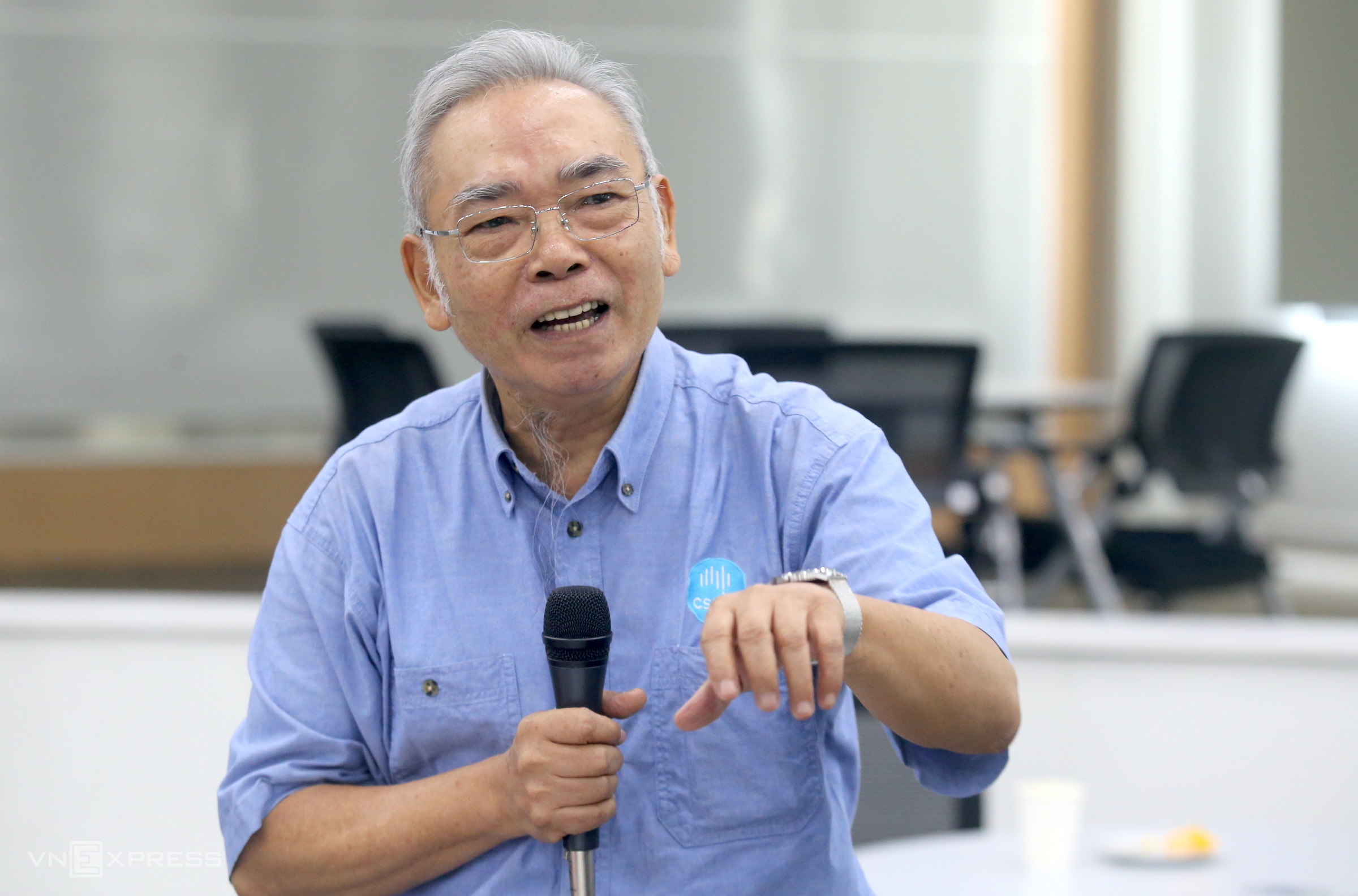 |
Professor Phan Van Tan speaking at the workshop. Photo: Gia Chinh |
Professor Phan Van Tan speaking at the workshop. Photo: Gia Chinh
Professor Tan explained that replacing gasoline-powered vehicles with electric ones would strain Vietnam's electricity production. "Our electricity consumption increases by 10-15% annually. If we transition all vehicles to electric power, it means shifting all gasoline energy consumption to electricity. We need to estimate how much electricity will be consumed and whether the power grid can handle it," he questioned.
While shifting from personal vehicles to public transport would be ideal, Professor Tan pointed out the current inadequacy of the public transport network. "Not to mention, we currently lack pedestrian spaces and sidewalks. In Thailand, they have space for vendors below, while above, they still build bridges for pedestrians," he added.
Associate Professor Bui Thi An, Director of the Institute of Environmental Resources and Community Development, agreed that the green transition in transportation is inevitable. However, she expressed concern that many experts and citizens don't recognize transportation as the largest source of pollution, making it difficult to persuade them to switch vehicles.
"To make policies convincing and ensure public understanding and implementation, scientific measurement and data publication are necessary," Associate Professor An said, adding that financial tools are also needed to support people transitioning from gasoline to electric vehicles.
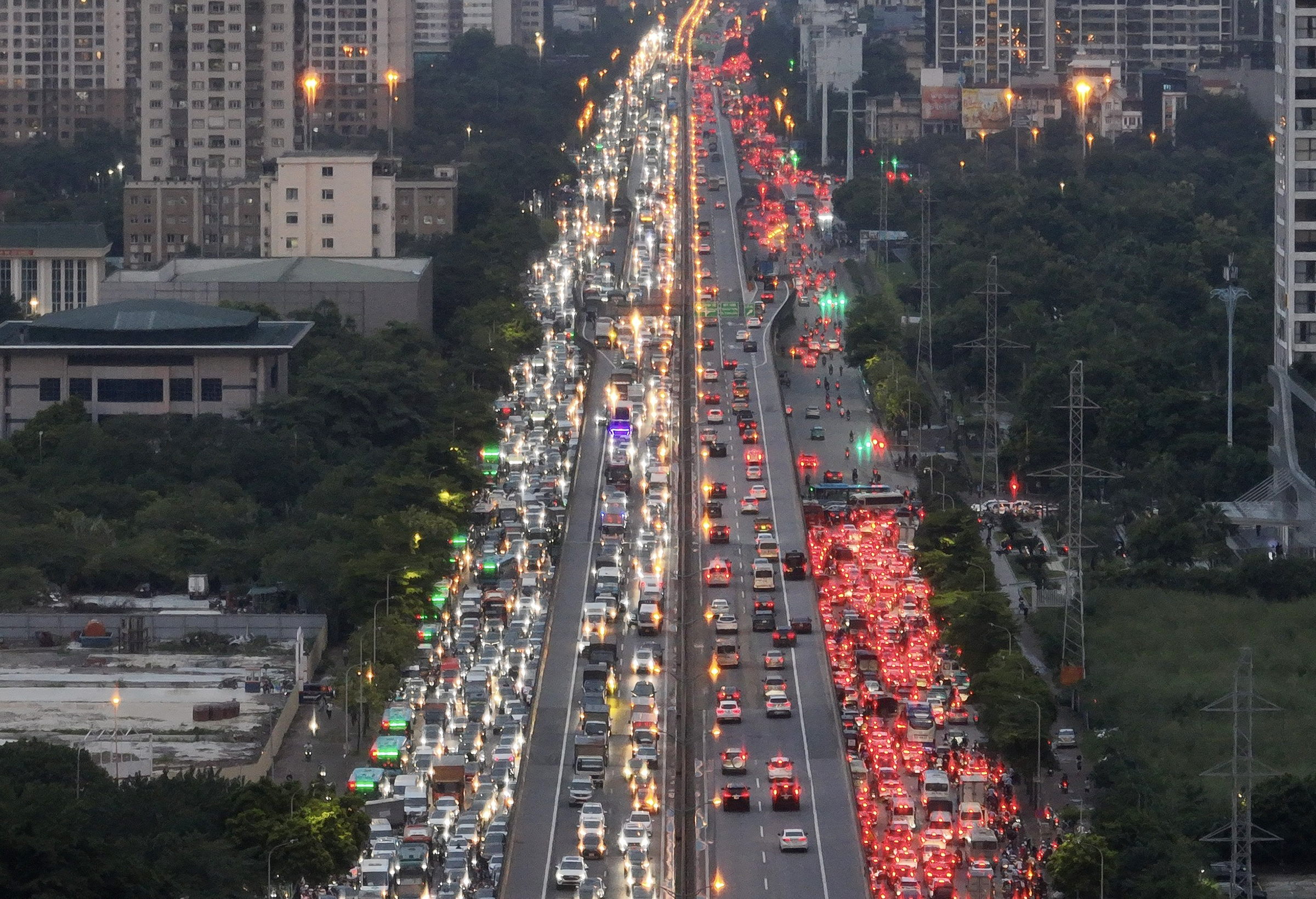 |
Traffic in Hanoi. Photo: Ngoc Thanh |
Traffic in Hanoi. Photo: Ngoc Thanh
Dr. Nguyen Tu Anh from VinUni University highlighted the significant financial challenge of the transition. Citing BloombergNEF estimates, she explained that to achieve the net zero target by 2050, Vietnam needs an investment of 2.4 trillion USD (2023 value) between 2024 and 2050. The Power Development Plan 8 alone requires at least 134 billion USD in investment over the next 5 years.
While international aid is substantial but insufficient, Dr. Tu Anh suggested leveraging the value created by the green transition itself: carbon credits. The question is whether these credits can be freely traded internationally under Article 6 of the Paris Agreement or only within the domestic market. International trading could yield greater financial benefits.
Dr. Nguyen Dinh Tho, Deputy Director of the Institute of Strategy and Policy on Agriculture and Rural Development, mentioned existing measures to alleviate the pressure of phasing out gasoline-powered motorcycles, such as inner-city tolls and switching to 5-10% biofuel. However, biofuel has a drawback: its ethanol content can damage the fuel lines of vehicles not made with high-quality plastic and rubber, potentially causing fires.
Dr. Tho proposed three comprehensive solutions: using carbon credits for fossil fuels to promote charging station development; using credits for electric vehicles to encourage gasoline vehicle manufacturers to switch to electric vehicle production; and using credits for zero-emission vehicles.
"This is the best way to reduce emissions in the coming period. We propose applying this only to new vehicles because the current number of motorcycles is enormous," Dr. Tho explained.
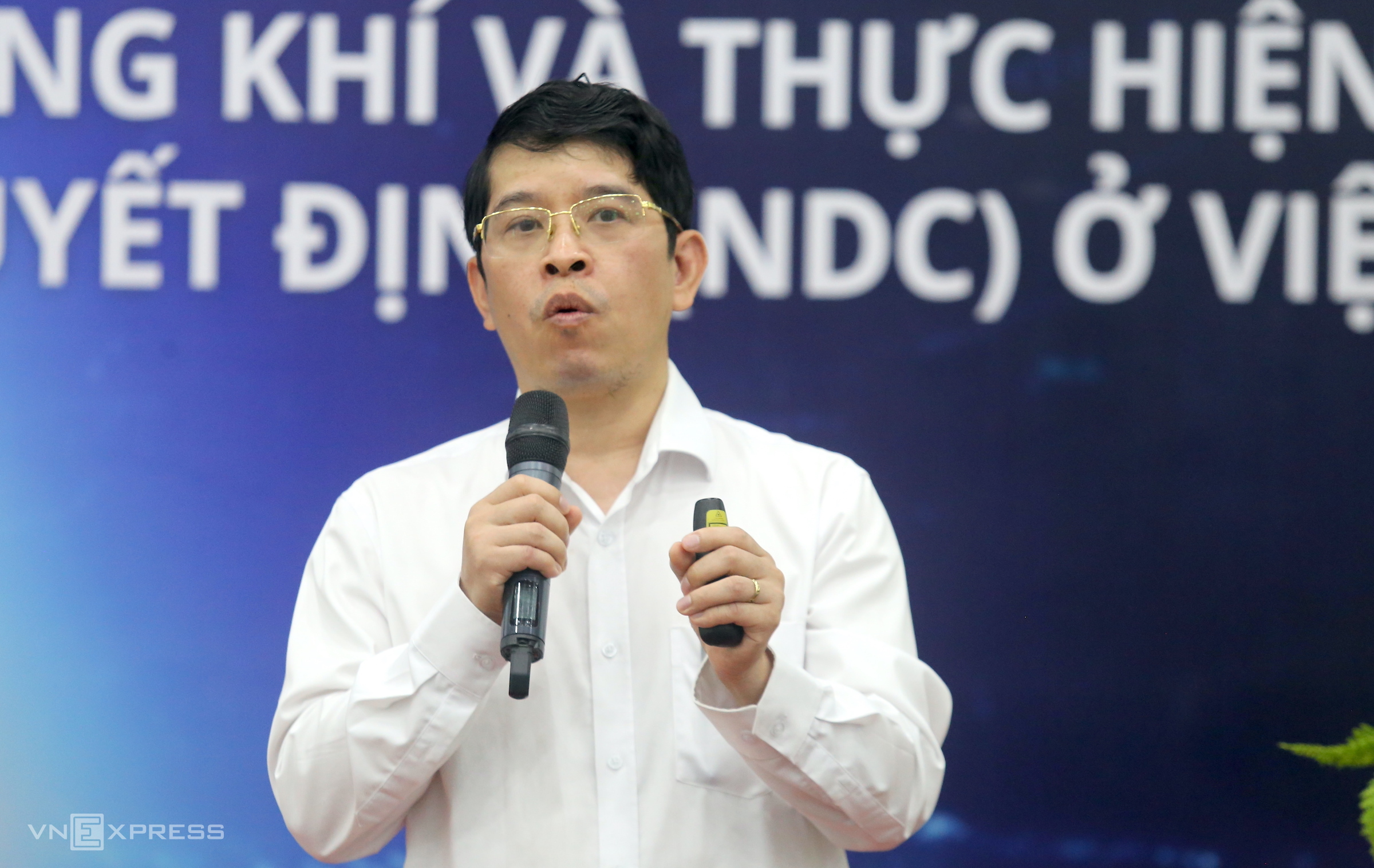 |
Dr. Nguyen Dinh Tho presenting at the workshop. Photo: Gia Chinh |
Dr. Nguyen Dinh Tho presenting at the workshop. Photo: Gia Chinh
Directive 20, issued by the Prime Minister in July, mandates Hanoi to implement strong measures to reduce traffic emissions and address urban environmental pollution, with a specific roadmap to 2030.
In the short term, the city must develop and publish a low-emission zone plan in Quarter III of 2025. By 30/9, Hanoi must issue support mechanisms for businesses manufacturing and assembling clean energy vehicles and investing in electric vehicle infrastructure. It must also implement policies to encourage residents to switch from gasoline-powered vehicles to green vehicles or public transport.
From 1/7/2026, Hanoi must ensure no gasoline-powered motorcycles operate within Ring Road 1. From 1/1/2028, along with the motorcycle ban, gasoline-powered cars will also be restricted within Ring Roads 1 and 2. By 2030, the restriction will extend to Ring Road 3.
Gia Chinh




